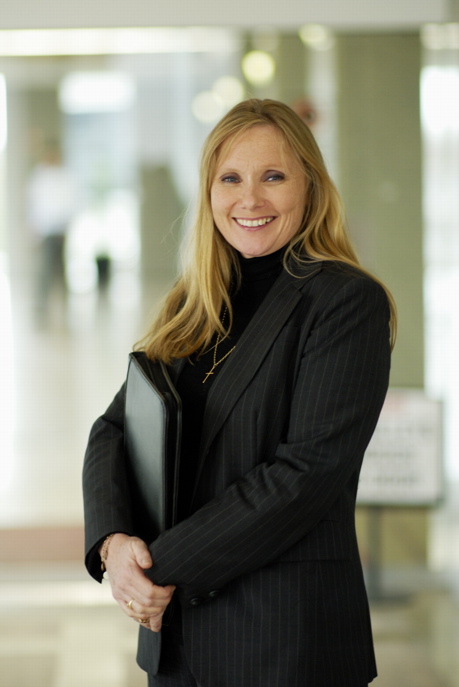 Toll's Second Step co-ordinator Ruth Oakden |
Hiring a forklift driver with a known history of heroin use is a policy that seems to run counter to common sense.
Yet it is a policy applied consistently at logistics giant Toll Holdings - and it works.
Company chaplain and co-ordinator of Toll's Second Step program, Ruth Oakden, said the program "is not rocket science".
"It is very much based on the kind of support we offer long-term employees who fall into a difficult period. The main difference is that [participants] are at the beginning of their time with Toll.
"It works because, as an organisation, the concept is accepted and, as we have developed the program, more people have come to realise that it is not difficult, dangerous or scary."
Toll steps in after participants have completed the first step - a naltrexone-led physical recovery from heroin use - through a Disability Employment Action Centre (DEAC) clinic in St Kilda, Melbourne. DEAC is a not-for-profit employment organisation for people with disabilities and from disadvantaged backgrounds. Clients are prepared for work through training and development programs and counselling services. Most importantly, participants must demonstrate an ability to stay clean.
"Consciously employing people who have a mental illness is an aspect of our program, simply because addictions and prison sentences often have associated mental health issues that will respond to employment and a 'normal' social environment," Oakden said.
"Basically, if we accept the stats that tell us one in four or five adults has a mental illness at any one time, we employ people with mental illness all the time.
"The benefits are that we retain staff, assist in their recovery, keep their expertise and knowledge, and respond to an illness as a situation that can be treated and will be recovered from and so assist in the reduction of time off, which benefits every one."
Only a supervisor and a buddy on the floor know that the new forklift driver is a recovering heroin addict.
"It is important to remember that drug addictions often remain hidden any way," Oakden said.
"The only thing we find that sets people apart is their eagerness to work and appreciation of the opportunity to get back into the work force."
Oakden said she did not like to share too much detail of success stories as "it's a small world".
But she recounted the tale of a 42-year-old man with a 20-year habit who was reunited with his sons and parents. "He left work with us to complete an engineering degree," she said.
"Following their time as Second Steppers, and during it, people have developed new relationships, applied for car loans, had children and have mortgages. That's success, isn't it?"
Of more than 50 people who have been through the program, about 70 per cent have been trained as forklift drivers.
"That's 35 people who have not reused or re-offended, are earning their living, paying taxes and contributing positively to the same community that they were probably a drain upon previously," Oakden said.
"They get a job, become part of the team and usually stay on after their time on the program.
"Some get promoted, or move into different areas - we won't let good workers go."
For more information go to
www.firststepprogram.org/